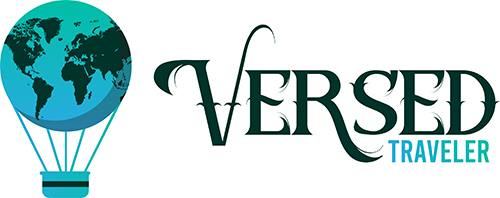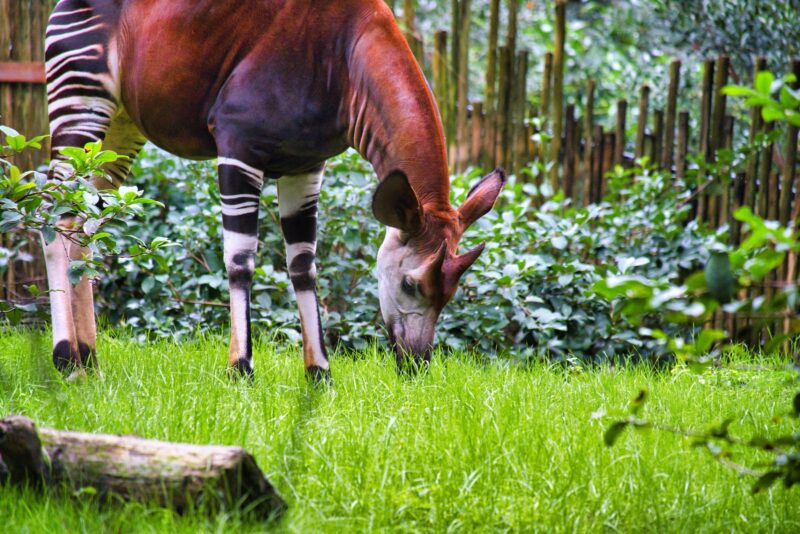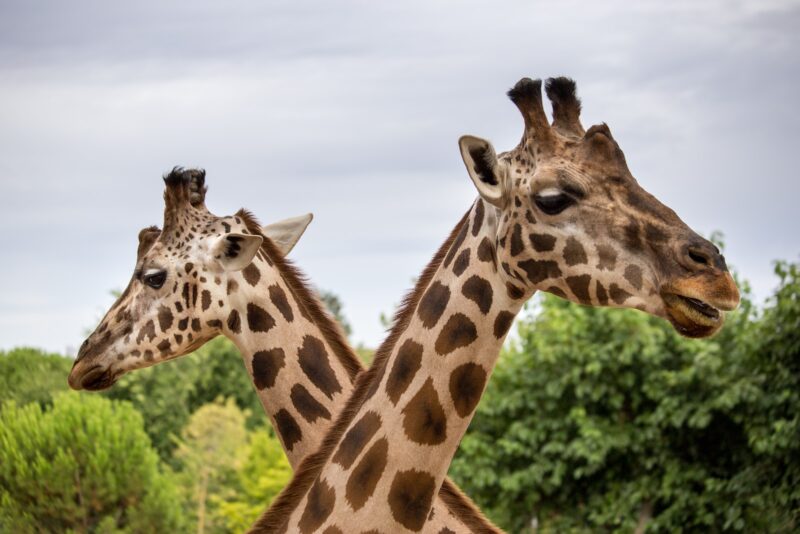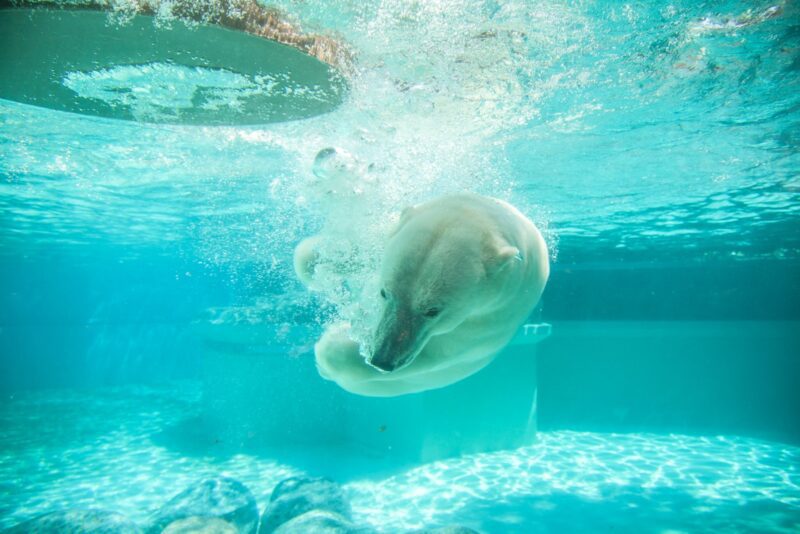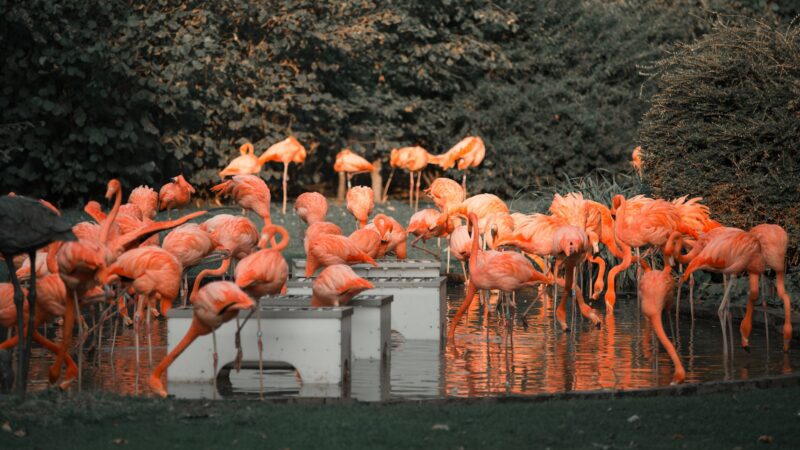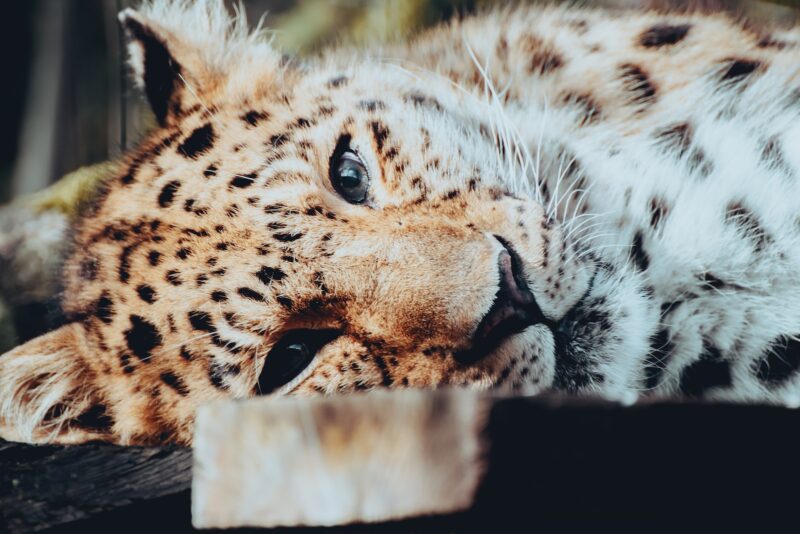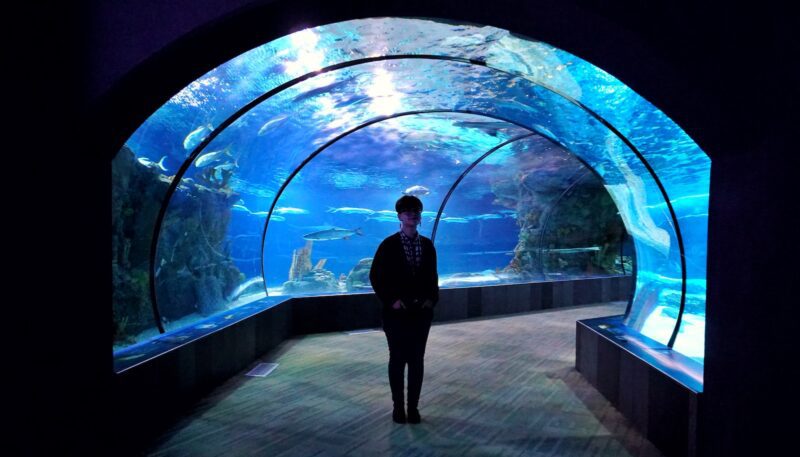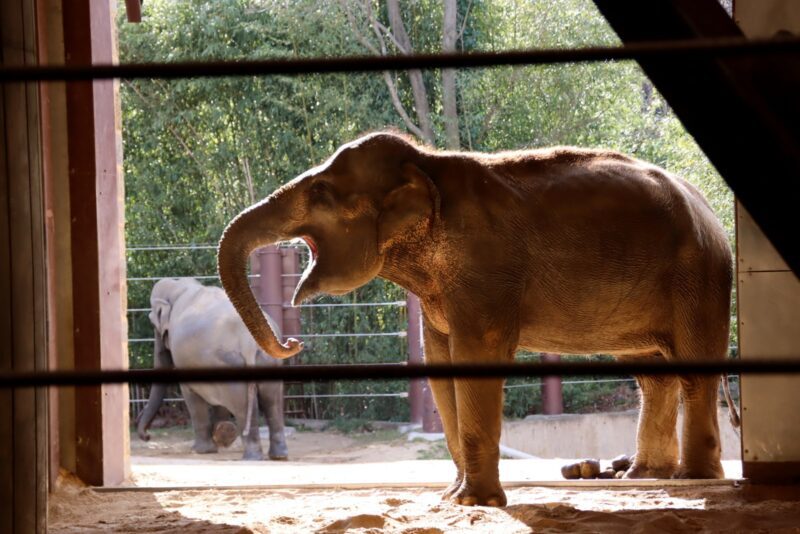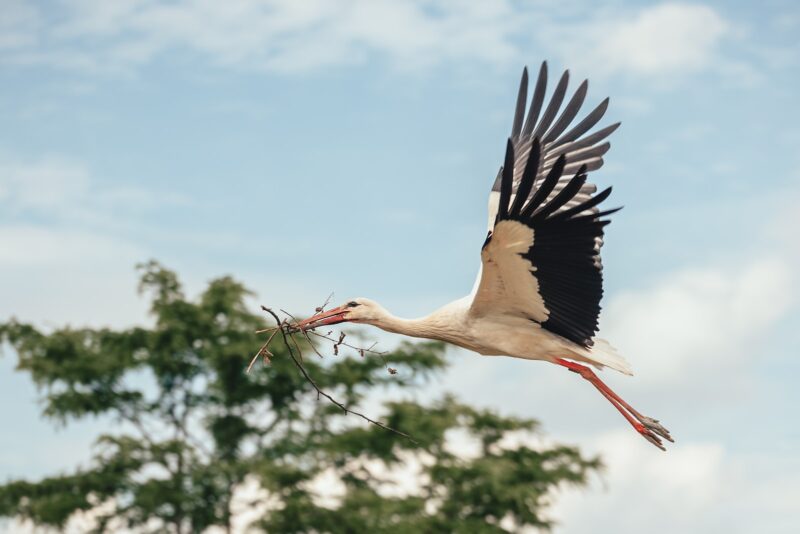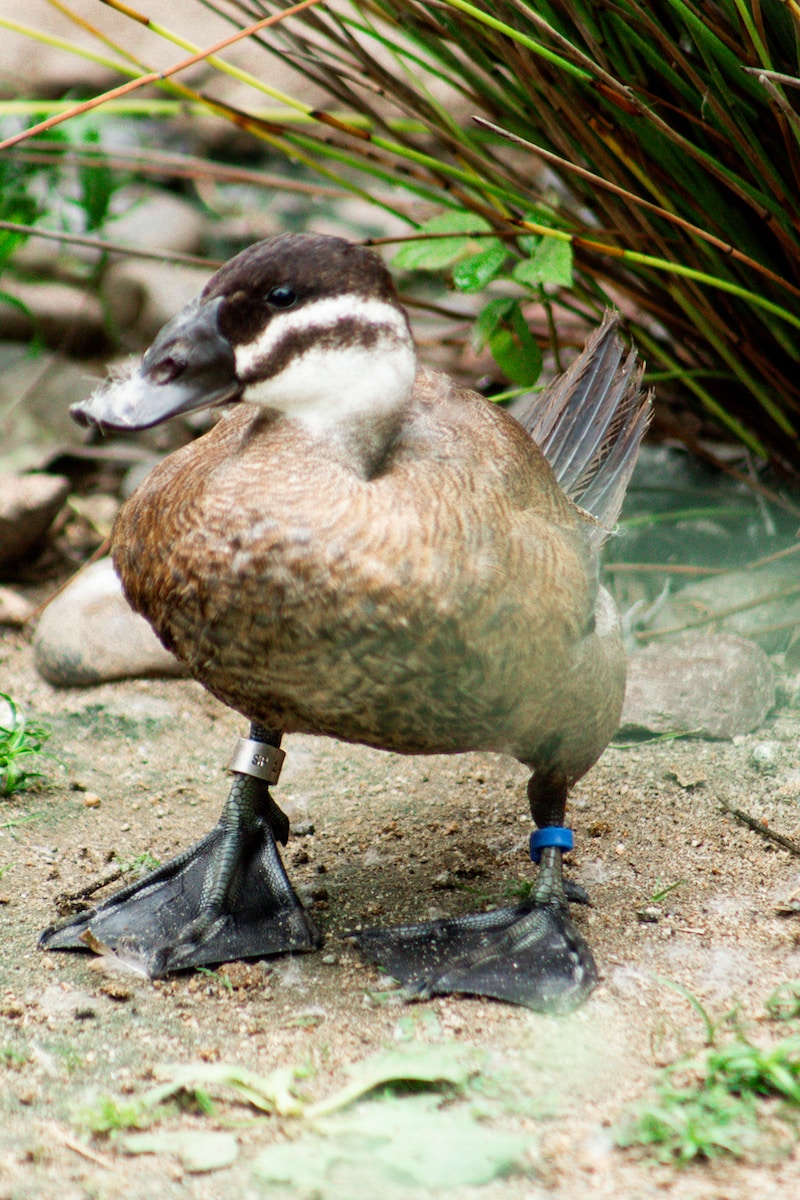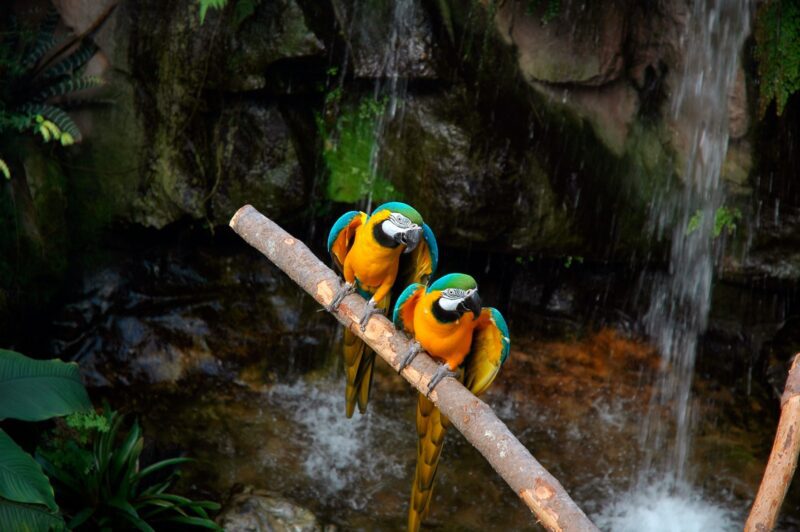Visiting a zoo can be a fun and educational experience for all ages. However, with growing concerns about animal welfare, it’s important to choose zoos that prioritize ethical treatment of their animals. The Association of Zoos and Aquariums (AZA) has compiled a list of AZA-accredited zoos that provide excellent care for their animals and support conservation efforts.
Check out this post on how to be a more eco-friendly traveler
Table of Contents
Toggle14 Ethical Zoos in the US
In this article, we will highlight 14 of the most popular zoos in the United States, according to the AZA. Our focus will be on well-known ethical zoos that prioritize animal welfare and conservation efforts. By choosing to support these zoos, visitors can ensure that their experience is not only enjoyable but also contributes to the well-being of the animals and the environment. In this post we explain how to determine whether a zoo is ethical or not.
Disney’s Animal Kingdom Theme Park — Bay Lake, Florida
Disney’s Animal Kingdom is the world’s largest zoological theme park, spanning 580 acres. The park boasts a diverse range of animals, including tigers, lions, gorillas, elephants, and giraffes. The park has made remarkable strides in growing its elephant and giraffe herds. Additionally, the park has contributed to conservation efforts by transferring a white rhinoceros born at the park to the Ziwa Rhino Sanctuary, which helps reintroduce the animal to Uganda. Disney’s Animal Kingdom emphasizes ethical treatment of animals and is committed to conservation efforts.
Learn about eco-friendly sea travel, causing, and sailing here.
San Diego Zoo — San Diego, California
The San Diego Zoo is a highly regarded zoo that has received accreditation from the AZA and recognition from the American Alliance of Museums. The zoo is home to over 12,000 animals, including more than 650 species and subspecies. The zoo’s wildlife alliance arm has made significant strides in areas such as genetic diversity, reproductive sciences, disease, and population sustainability. These efforts are aimed at saving plants and wildlife worldwide. The San Diego Zoo is committed to ethical zoos and ensuring the well-being of all animals under its care.
Lincoln Park Zoo — Chicago, Illinois
Lincoln Park Zoo is one of the oldest zoos in North America, and it is also one of the largest zoo-based conservation and science programs in the country. The zoo’s scientists constantly monitor animal behavior to improve their welfare and have conservation initiatives set up all over the world. The zoo’s ethical practices make it a great choice for visitors who want to support responsible animal care. Additionally, admission to the zoo is free, making it accessible to everyone.
Saint Louis Zoo — St. Louis, Missouri
The Saint Louis Zoo is home to almost 500 animal species and is renowned worldwide for its innovative approach to animal care and wildlife conservation. The zoo has established two institutes to further its conservation efforts: the WildCare Institute and the Institute for Conservation Medicine. The WildCare Institute supports initiatives that protect animals from diseases, poaching, and shrinking habitats. On the other hand, the Institute for Conservation Medicine researches the impact of infectious diseases on the long-term survival of species and the health of animals, humans, and ecosystems. It is essential to note that admission to the zoo is free, emphasizing the importance of ethical zoos.
Houston Zoo — Houston, Texas
The Houston Zoo is a popular destination for tourists, with over two million visitors annually. The 55-acre park is home to more than 6,000 animals, representing over 900 species from around the world. Visitors who purchase tickets to the zoo are supporting almost 50 wildlife conservation projects globally, as well as local projects aimed at saving native Texas species from extinction. The Houston Zoo is committed to ethical practices and ensuring the welfare of all animals in their care.
Brookfield Zoo — Brookfield, Illinois
Brookfield Zoo is home to a diverse range of animals from all over the world, including wallabies, lions, and dolphins. The zoo offers interactive programming through its ambassador program where guests can attend zoo chats and demonstrations led by animal care specialists. The zoo’s mission is to bring people closer to animals and help them gain an appreciation for all citizens of the natural world. The zoo has several exhibits such as Australia House, which features emus, wombats, and kangaroos, and Habitat Africa, which is home to giraffes, antelope, and crocodiles. Brookfield Zoo emphasizes the importance of ethical zoos and strives to provide a safe and comfortable environment for its animals.
Omaha’s Henry Doorly Zoo and Aquarium — Omaha, Nebraska
Omaha’s Henry Doorly Zoo and Aquarium is home to a diverse range of animals, including red pandas, Indian rhinos, snow leopards, and Amur tigers. It is a popular destination for people who want to learn about animals from all over the world. The zoo is also involved in important scientific research, including molecular genetics, reproductive physiology, and conservation medicine. As an ethical zoo, the Henry Doorly Zoo and Aquarium is committed to providing the best possible care for its animals while also promoting conservation efforts.
Smithsonian’s National Zoo — Washington, D.C.
The Smithsonian’s National Zoo in Washington, D.C. is known for its family of giant pandas, but it also plays a significant role in conservation efforts. The Smithsonian Conservation Biology Institute, located behind the scenes, is dedicated to inspiring and training future conservationists while working towards saving wildlife species from extinction. The institute’s initiatives include breeding species that were once extinct in the wild, such as the black-footed ferret and scimitar-horned oryx, and global tiger population and regional landscape preservation. The zoo emphasizes the importance of ethical zoos and their role in conservation efforts.
Denver Zoo — Denver, Colorado
The Denver Zoo, spanning 84 acres, is home to over 3,000 animals. The zoo’s Field Conservation and Emergency Wildlife Response teams are dedicated to protecting threatened species worldwide. The teams work to combat habitat loss, human encroachment, and catastrophic events in locations such as Mongolia, Peru, and Vietnam. The Denver Zoo sees its animals as ambassadors for their wild counterparts and emphasizes the importance of ethical zoos.
Como Park Zoo & Conservatory — Saint Paul, Minnesota
Como Park Zoo & Conservatory is a year-round destination that offers free admission to visitors who make reservations in advance. The park attracts over two million visitors annually and provides various programs for people of all ages, including virtual classes for kids and evening strolls for seniors. The park’s mission is to inspire the public to value the presence of living things in their lives. They achieve this by introducing visitors to animals from around the world and promoting conservation efforts. Como Park Zoo & Conservatory emphasizes the importance of ethical zoos in their mission to educate visitors about the value of living things.
Bronx Zoo — Bronx, New York
The Bronx Zoo is the flagship zoo for the Wildlife Conservation Society. It is dedicated to saving wildlife and wild places. The zoo is home to over 10,000 animals and has its own zoo hospital. The park spans across 260 acres of hardwood forest and features landscapes from Tanzania and Australia. The Bronx Zoo is an important example of an ethical zoo that prioritizes the well-being of its animals.
Los Angeles Zoo — Los Angeles, California
The Los Angeles Zoo is home to over 2,200 animals, including more than 60 endangered species. Visitors must make reservations to enter, but the experience is well worth the effort. The zoo’s mission is to create a better future for wildlife, which they do by supporting fieldwork, gathering data and insights, offering innovative animal care, and hosting speaker series and educational events. The culmination and successful execution of these efforts make Los Angeles Zoo one of the best ethical zoos in the US.
One of the highlights of the zoo is the Rainforest of the Americas exhibit, which allows visitors to experience the diverse ecosystems of the Americas. Another popular exhibit is the Elephants of Asia, the largest habitat in the zoo. The zoo emphasizes ethical practices and strives to provide a safe and comfortable environment for all of its animals.
Cincinnati Zoo & Botanical Garden — Cincinnati, Ohio
The Cincinnati Zoo & Botanical Garden is the second-oldest zoo in the United States and has been housing animals since 1875. The zoo is recognized for its successful hippo conservation program, which gained international attention with the birth of Fiona, a premature hippo pup. The zoo’s team took over her care, ensuring her survival and good health, and her journey has been followed by millions of people worldwide.
In addition to its animal conservation efforts, the Cincinnati Zoo is involved in educating people on sustainable palm oil, pollinator conservation, and cell-phone recycling. These initiatives have a direct impact on animals around the globe and emphasize the importance of ethical zoos. The zoo also has a beautiful botanical garden, which provides a serene environment for visitors to learn about and appreciate the beauty of nature.
Oregon Zoo — Portland, Oregon
The Oregon Zoo, located a short distance from downtown Portland, is home to a diverse range of animals, including the Amur tiger, Asian elephant, and black rhinoceros. The zoo is committed to the conservation and recovery of endangered species, both through long-term research projects and short-term initiatives. They also lead educational campaigns on the dangers of lead ammunition, which poses a threat to both humans and wildlife. The zoo’s efforts align with the importance of ethical zoos, which prioritize the well-being and conservation of animals.
What to Look for to Know Whether a Zoo is Ethical or Not
Conservation
When considering whether a zoo is ethical or not, there are several key factors to look for. Firstly, it is important to research the zoo’s conservation efforts and breeding programs. Ethical zoos will prioritize the conservation of endangered species and participate in sustainable breeding programs to help maintain healthy populations of animals.
Living Conditions
Additionally, it is essential to examine the living conditions of the animals. Look for spacious and enriching habitats that mimic the animals’ natural environments. Ethical zoos will ensure that the animals have access to proper nutrition, veterinary care, and opportunities for mental and physical stimulation.
Transparency
Another important aspect to consider is the zoo’s transparency and education initiatives. Ethical zoos will be open and honest about its practices and will work to educate visitors about conservation and animal behavior. In addition, it is crucial to assess the zoo’s relationships with other organizations and accreditation. Ethical zoos will be accredited by reputable organizations such as the Association of Zoos and Aquariums (AZA) and will collaborate with other conservation groups to support global wildlife protection efforts.
Aminal Stimulation
Lastly, consider the zoo’s approach to animal entertainment and interaction. Ethical zoos will prioritize the well-being and natural behaviors of the animals, avoiding exploitative shows or interactions that may cause distress. Instead, they will provide opportunities for visitors to learn about and appreciate the animals in a respectful and non-intrusive manner.
A Final Thought Regarding Ethical Zoos
Determining whether a zoo is ethical or not involves thorough research and critical observation of the zoo’s conservation efforts, animal living conditions, transparency, accreditation, and approach to animal entertainment and interaction. This guide was meant to provide you with a few notably good options. There are other ethical zoos in the US that might be closer to you. It would be much easier to forgo the research and travel to the nearest zoo. Buy by intentionally looking for and supporting ethical zoos, you will actually be benefitting the animals you enjoy seeing so much.
